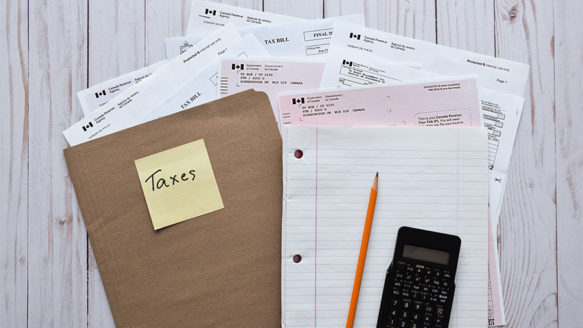
30 Amazing Timeless Money Tips
As November ends and Financial Literacy Month comes to a close, we look back on our #30DaysofMoneyTips campaign, where we published a new money tip every single day. The campaign was a great success, with lots of engagement on social media. A big thank you to all those who shared, liked and commented on our posts.
So, we had an exciting idea… Why not take all those helpful money tips, and bring them all together in one big Money Tips Blog post? And that’s exactly what we’ve done!
Here are 30 Timeless Money Tips for you.
Lots of people are struggling financially right now – perhaps consider sharing this post on Facebook or on Twitter. You never know, some of these tips could make a big difference to people’s lives.
- Make a Budget
- Open an RRSP and/or a TFSA
- Online Grocery Shopping
- Remove Credit Card Info
- Go Easy on the Pedal
- Use Thrift Stores
- Use Gift Cards
- Automate
- Off-season Shopping
- Use the guest check-out
- Practice Gratitude
- Save Your Change
- Try a Cash-Only Budget
- Set an Intention
- Meal Plan
- Need Not Greed
- Make a Subscription List
- Pay Yourself First
- Accountability Buddy
- Check Your Credit
- Start an Emergency Fund
- Get Three Quotes
- Take an Online Course
- Calculate the Cost in Hours Worked
- Use a Money Mantra
- Start a Money Diary
- Institute a Waiting Period
- Look After Your Mental Health
- Do It Yourself
- Talk to a Credit Counsellor
Creating and maintaining a budget is always top of the list when it comes to money tips. Understanding how much money you have coming in, and how much you have going out, is fundamental to any financial planning. Creating a budget can be difficult. But don’t worry, we have a FREE spending sheet for you to download.

Stretch Your Dollars
This workbook offers suggestions on how to budget and cut your expenses, boost your income and access useful information, services and programs. Download the workbook.
The Registered Retirement Savings Plan (RRSP) and Tax-Free Savings Account (TFSA) are two great ways to shelter your retirement nest egg. Consider contributing towards your RRSP to lower your taxes, take advantage of employer matching (if applicable) and possibly get a sizable refund this tax year. Use the refund to invest in your TFSA to minimize a future potential tax burden when you retire.
Online grocery shopping can be a game changer for staying on budget. You only buy the items you need and not the items you want. You can comparison shop online for the cheapest brand or what’s on sale or use one of these grocery apps. And by conveniently shopping from your own pantry, you can plan out exactly what you need and avoid ending up with duplicate items by mistake. It’s a huge time saver and a great way to shop.
Remove your credit card information from online shopping websites. You’re more likely to spend money if all you have to do is simply click to purchase. But if you have to dig through your wallet and input the information yourself, you’ll have more time to fully think about the purchase and whether it’s truly a need or a want. This is a good way to prevent buyer’s remorse.
Using a lighter touch on your gas pedal can save you significant money! For highway driving, exceeding the speed limit will increase your fuel consumption—in some cases by 20% or more. With city driving, hard braking and fast accelerations also increase fuel consumption. Try taking it easy for a month to see what kind of difference that makes in your pocketbook!
Thrift stores are a great way to shop. You’d be amazed at the items people donate because they don’t need them anymore—and many of the items are new! Your local thrift store employs many individuals that have barriers preventing them from finding other employment. So not only are you getting a great deal on something that you need, but you’re also giving back to your community. And don’t forget to donate any items that you no longer need. Pay it forward and happy shopping! This tip comes from our 10 Frugal Habits to Save Money post.
An easy way to stay within your budget is to buy gift cards for things you tend to overspend on. This could be groceries, eating out, your favourite coffee shop, online gaming or shopping websites. With a gift card, you can set your budget. It is money you have given yourself permission to spend in a particular way (so you don’t have to feel guilty about it), and it tells you your remaining balance—reminding you to stay within your limits.
Automate your bills and savings! Set up automatic withdrawals to pay all your bills on a pre-set date so that you don’t have to spend time manually paying each one and no longer worry if the bill payment will be processed in time through the bank. You can also do this for your registered savings accounts, allowing you to budget with what money is leftover in your account for other things. Setting this up on autopilot saves you time and you can simply review the charges at the end of every month.
To save money all year long, consider doing off-season shopping. You can get amazing deals by buying clothes at the end of the season, and by doing your Christmas shopping when everything goes on sale the following year. This has allowed me to have a stress-free Christmas and not worry about buying things on credit. I get all my shopping done early and have no credit card debt, so it’s a win/win.
Online shopping has increased our ability to purchase items we may not really need or be able to afford. When using online sites for shopping, always use the guest checkout, that way you will always need to enter your address and payment card information. By using the guest checkout, you give yourself time to think about that purchase you may not really need or be able to afford.
Practice gratitude regularly to help you gain perspective and feel comfortable about where you are at in life. You might not be debt-free yet or have enough savings for a down payment, but we guarantee there are parts about your life that you’re thankful for. Whether it’s for your family, friends, pets, hobbies, habits, or coffee―cultivate gratitude for at least one person or thing each week to help keep you motivated. This tip comes from our popular post 12 Great Ways to invest In Yourself.
Save your change! It can be difficult to save money when living on a tight budget. On pay day, after you’ve paid your bills, divide the amount that is leftover by the number of days until you get paid next. This gives you a daily spending limit. Whatever money you have leftover at the end of each day, transfer it into your savings instead of rolling it over to tomorrow and spending it then. You’ll be amazed at how quickly your savings grow!
Try to implement a cash-only budget. Take a look at your previous month’s finances so you can get a better understanding of how much money you spent for pleasure (like food delivery, take out, dining out, activities and non-essential purchases) and keep in mind upcoming events or plans this month and next. This will help you build an achievable cash-only budget so you don’t have to fall back onto your credit or debit cards. A cash-only budget will teach you to strategically spend your money and put any disposable income into savings.
Setting an intention for yourself and repeating it often can help you change your relationship with money and achieve your financial goals. Identifying clear intentions like ‘I will be debt-free by January 2024 by making monthly payments’ or ‘I will save $1200 in emergency funds by November 2023 by putting $100 away each month’ will make your goals more attainable. Remember: What you focus on often becomes your reality.
Meal planning is a great way to save money. Avoid overspending on groceries by only buying what you need for weekly meals. Use any gift cards you have on your essentials as opposed to buying things you do not need, and use all of your change from the jars around your house to pay for this weeks’ groceries. You never know how much is lying around. Find this tip in our post 10 (Fun & Easy) Money Tips For Families
If you don’t need anything in particular, stay out of the malls. Stores spend lots of time and money on their window displays with merchandise or posters to entice you into the store to see their deals. And be wary of those ‘just in case’ purchases! We promise you don’t need to buy that extra pair of pants or shoes just because they might be on sale.
Subscriptions and memberships automatically renew without any attention from you, even if the price has increased. To avoid this cost creep, you should regularly audit spending on these silent-but-deadly budget bombs. Review your app store recurring bills, credit card and bank statements for the past year to locate all your sign-ups and automatic payments. Make a list of them all and then determine which ones you can cancel moving forward. Find this tip to cancel subscriptions here along with more money saving tips for winter.
“Pay yourself first” is one of our favorite financial strategies and tip #7 in our blog post 7 Financial Tips We’re Thankful For. It works like this: when you get your paycheque you automatically take a percentage of your net pay, (you can start with 5%, 10% or even 20% depending on your financial situation) and put it in a savings account before your monthly expenses are paid. Over time, this strategy can help you build a mini emergency fund, a full emergency fund, a retirement or education fund.
One of the best ways to save money for goals or stick to a budget is to find a financial accountability buddy. Check-in with one another once a week, or contact them whenever you are about to make an impulse purchase. They’ll ask you the right questions and remind you why saving that money was so important to you in the first place. Find more money tips like this in our post to help you stop spending money on wants.
When was the last time you checked your credit score or read your credit report? If you can’t remember, take that as a sign to check it now. Your credit score plays a huge role in overall finances. It affects everything from loans and leases to credit cards and mortgages, plus so much more, so it’s important to know your credit health. You can easily get your credit score through the two Canadian credit bureaus, Equifax and TransUnion.
Emergencies can happen to the best of us and quite unexpectedly, which is why you should plan for them ahead of time. Emergency funds should be an integral, non-negotiable part of your overall finances. Don’t wait until something bad happens, start putting money away as soon as possible.

Try our calculator!
Find out how much emergency savings you should save for unexpected expenses. Try the calculator for free .
You’ve heard of getting a second opinion. Well, how about a third? Whenever you need to buy anything, try to find at least three places that are selling it so that you can compare the prices. This will also give you an opportunity to ask questions at three different sources and learn more about the product or service. The more informed you are before making a purchase, the better!
One of the best things you can do for your financial wellbeing is to improve your financial literacy. At Money Mentors, we offer a number of free online courses on everything from fraud prevention to retirement planning.
This is a great piece of advice from our Money Tips post on Buyer’s Remorse. With contactless payments, and schemes like Buy Now Pay Later, it can be hard to appreciate exactly how much something costs. Thinking in terms of hours worked is a great way to bring the cost of something into clarity.
If you follow us on social media, there’s a good chance you’ve seen our #MoneyMantra Monday posts. Money Mantras are short affirmations that you repeat to yourself as a way of changing your money mindset and putting you in a more financially positive frame of mind.
Starting a money diary is a great way to keep track of your spending habits and your emotional state during periods of spending. As you start to notice a link between emotion and spending, you can interrupt automatic behaviour patterns and take more control over what you spend. Visit our website and type “Money Diary” into the search bar to find our helpful guide to starting one.
Another helpful tip from our Money Tips post on Buyer’s Remorse. Giving yourself 72 hours before making a purchase can be the difference between an impulse purchase and a carefully considered decision. With contactless payments and on-click checkouts, it’s far too easy to make a quick purchase. Instituting a waiting period before a purchase gives you some time to think it through.
The link between money problems and poor mental health is well documented. Getting to grips with your finances can help bring about a healthier mental state, and similarly, taking steps to look after your mental health can improve your financial situation. Read our popular blog post Money & your Mental Health for more information.
You’d be amazed how many excellent tutorials you can find online for DIY projects to save you money. Obviously, if a task is dangerous or hazardous, always consult a professional. But for other, smaller jobs, try going to YouTube and searching for a step-by-step explainer video before you pick up the phone to call a contractor – you’d be amazed how helpful this can be.
So, we began with one of our most important money tips – starting a budget – and we are ending with one of our most important tips. Talking to a Money Mentors counsellor is 100% free and comes with no strings attached. Whatever is bothering you, pick up a phone and book a free appointment. As a non-profit, we regularly receive reviews that comment on how understanding and judgement-free our counsellors are.
Thanks for reading and be sure to check out all of our other great money tips! Once again, please consider sharing this – you never know who you could help!








